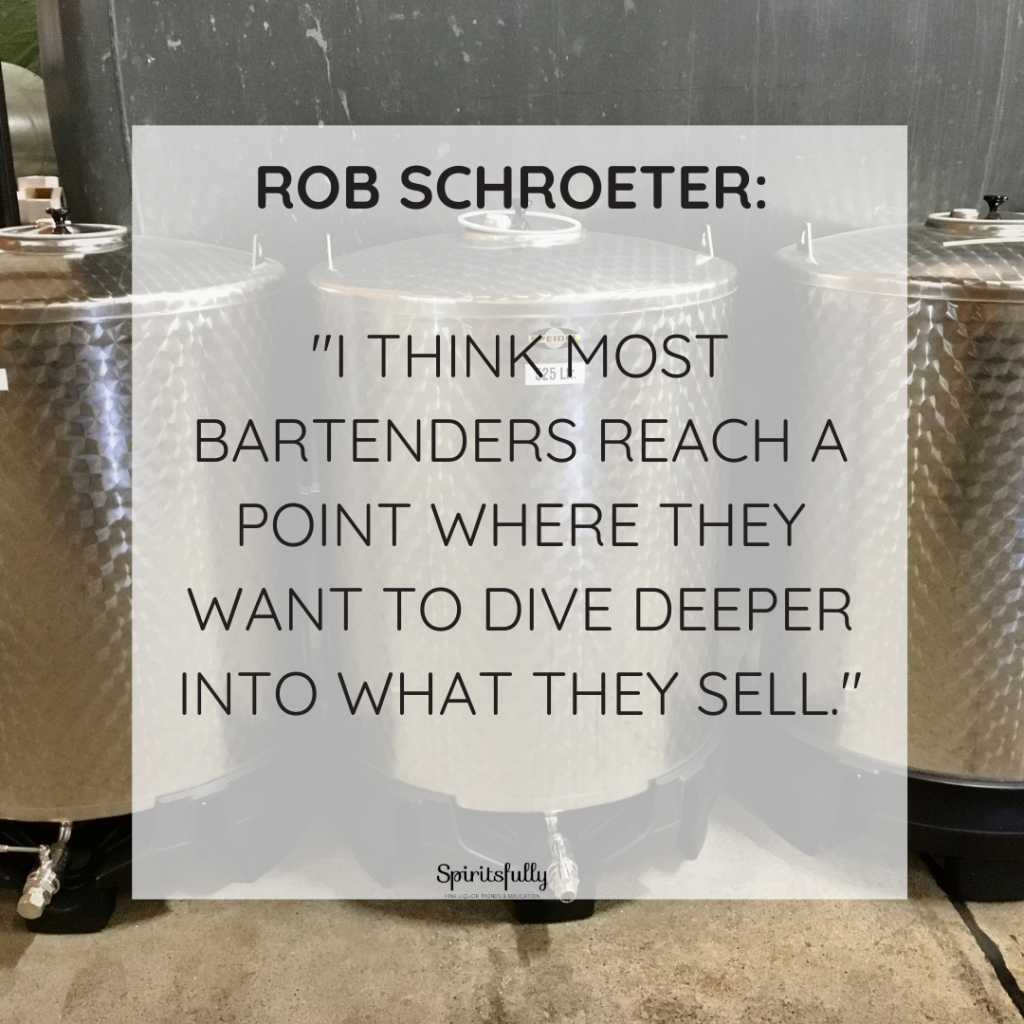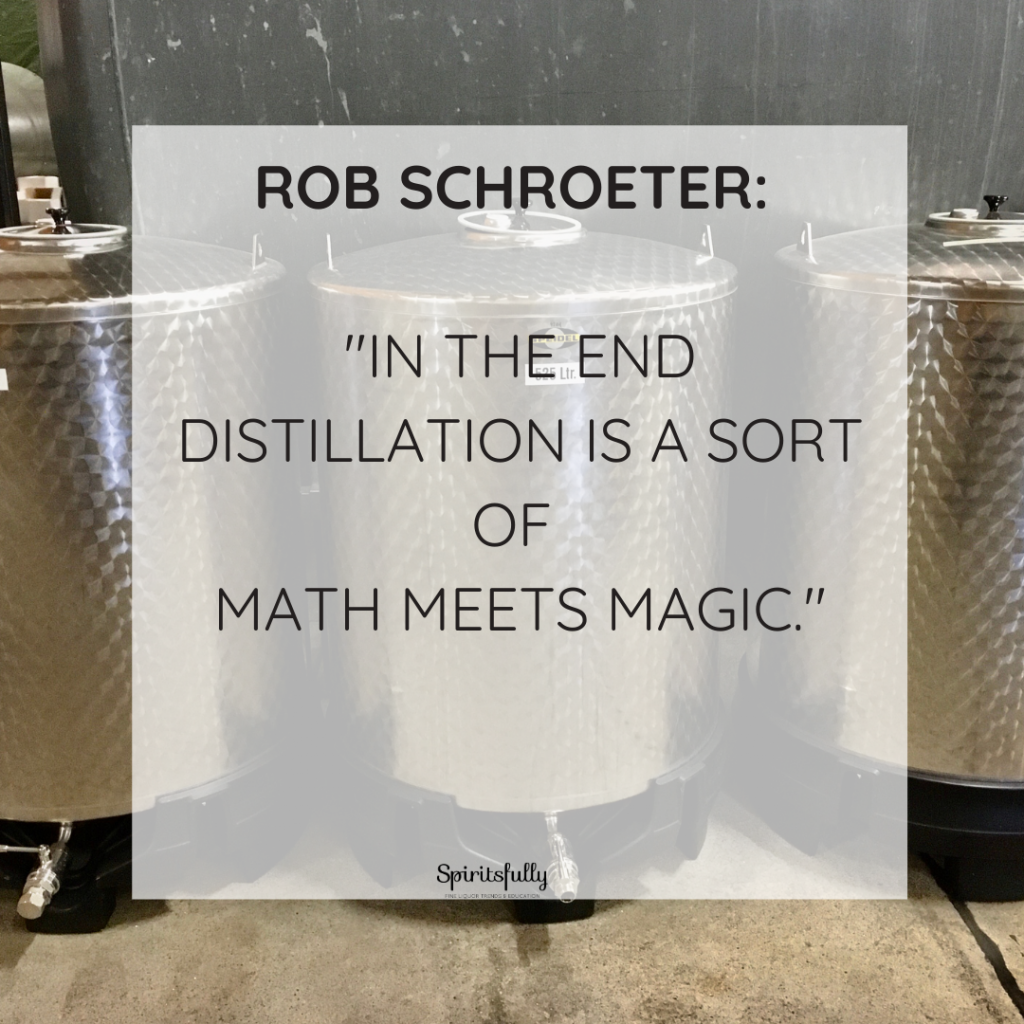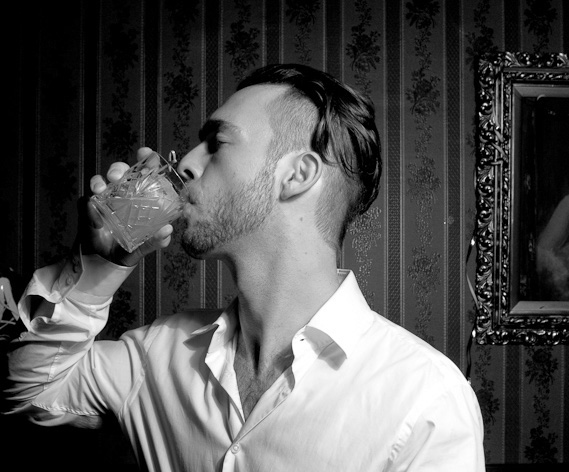
Hi Robert,
Tell me about you first. You’re not a professional distiller, at least not as of today, right?
You’re right. I started to work in clubs and bars in 2000. Since then, most of the time I worked as a bartender as well as managing bars, clubs and venues. I have owned bars as well and my thirst for knowledge and wish to always get better has not been quenched, yet. That’s why I am diving deeper into the production of spirits now.
Where are you now?
I currently live and work in Switzerland. There is a beautiful, family-owned distillery with nearly 150 years of history right between Berne and Lucerne. I use the turmoil of Corona to withdraw from big-city life and support this distillery. In exchange I get the chance to learn all I can!
And what’s the position you’re having?
‘Chief of Nothing’, maybe? 😄
Since I help out in various ways and at the same time have so much to learn it’s hard to label my position here. Part is ‘helping hand’, another is ‘consultant’ and a third ‘bartender at large’. So in which job description is that gonna fit, I wonder?
I let you answer that! Let’s go deeper into the process now. Can you make a photo for each of the important steps of spirit making, in other words, a subjective photo reportage to guide our readers through the process…
This would make sense if we’d have a linear production ‘cycle’. Which is a mindboggling way of putting this. But we distill in batches, obviously. But due to legal requirements as well as the method of distilling more than is needed to be bottled right away, the process is not a linear one. Additionally, now is no fruit harvesting time. All of our molasses has been fermented already and we don’t currently distill grain. So it’s not a good time to shoot all steps one after another right now in late fall.
However, here is my personal ‘photo love story’ of how we generally work ‘from fruit to bottle’, if I may say so.

What did you find great at the beginning?
Since this is a family owned business, and a handicraft at that, the bigger part of the family is involved. The elder generation have really built something here! They live to share (not to hoard) it, too. So there is an open and generous way of treating staff, guests and new chances or ideas are always greeted with open arms!
I am very happy at how well I was welcomed and try to give back with hard, exact work every day.
Which step in the distillation process is the most interesting for you?
I think most bartenders reach a point where they want to dive deeper into what they sell. And more and more of us decide to go right to the distillers! I always made the experience distillers highly enjoy us coming out to the country side (where almost all of them work) and check out their craft!
So when it comes to a single step that I enjoy most I can’t really say. It’s the magic of understanding your produce and ‘fetching the soul of the fruit’, as Oliver Ebert would put it.
But — come to think of it — I like best to WATCH all steps! Because, make no mistake, this is tough work where you’re constantly in motion…

And today, after a month over there, and some experiences before, what do you like best about distilling?
Ugh, it’s hard to put my finger on any specific step. In the end it’s a sort of math meets magic. Amazing what can be done! But it’s all a stringent and clear process that you follow meticulously. So I’d have to say it’s still the usage in cocktails and the pondering about how to use ‘our’ products best and in an innovative way.
What do you find difficult with distilling? Is there anything you don’t like?
Since the range of Studer Distillerie (actually spelled with an ‘i’ at the beginning) covers well over 30 products it is a constant switching between planning, production, filling and delivering. Due to that constant re-assembling of needed parts (different containers, different pumps, different spaces, different hoses, etc.) it can feel like playing with LEGO sometimes. It is still interesting and I like to always get it all right and sealed correctly. But I can see how that might get old after a year or two.
And I find the most difficult part is to push your own product as far as you can — and farther! It’s like cooking: the chef always enjoys his own meal. But when your bottle is out there and people compare it with their otherwise favourite brand you need to have the best product possible. Otherwise you’ll be labeled as ’not as tasty as’. So always trying to excel to continue to be a good brand that people buy happily: wow, that’s a heck of a task! I mean, you’re basically never there with your customers to ’sweet-talk’ them. It’s only your product they can judge and that comes down to the quality of work the distilling team accomplished months, sometimes years, prior!
What would you say to a young person who wants to become a distiller ? What would you recommend?
Don’t be mistaken: this is a job as hard as many others. You need brains, accuracy, muscle and above all: a great nose and love for the highest quality of spirits! Unexpectedly, distillers don’t drink so much — and especially not at work. Every distiller I’ve ever worked with only tried their distillate with their nose or the tiniest amounts to discern off-flavours. You need to be able to work hard with precision and be focused. If you have that and want to deliver highest quality booze: get at it!
Otherwise start in a bar and see how deep you can dive into spirits. If you’re still interested after three years: find an internship and see how you enjoy it in a distillery, then.
Thank you Robert!




